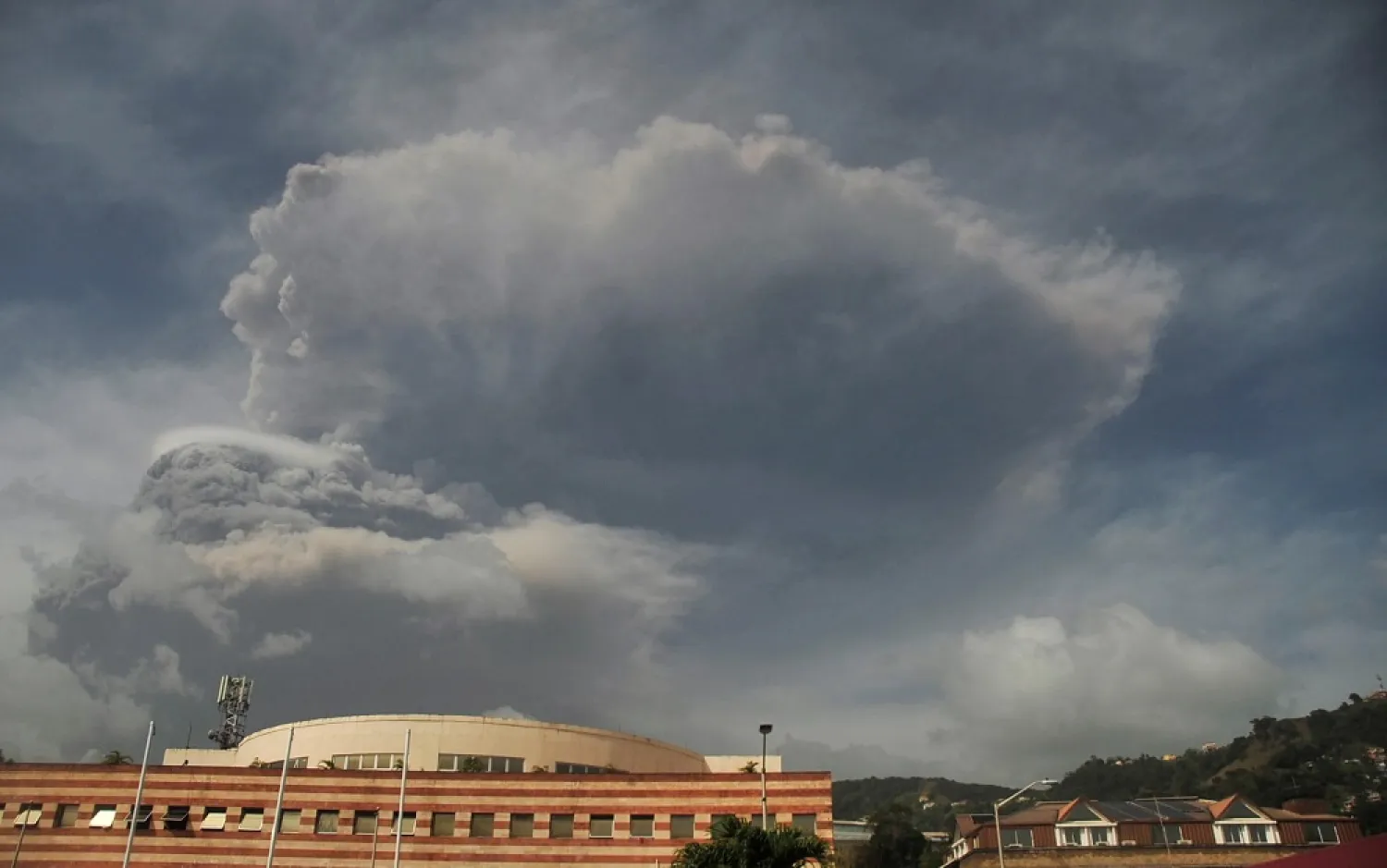La Soufriere volcano on the eastern Caribbean island of St. Vincent erupted on Friday after decades of inactivity, sending dark plumes of ash and smoke billowing into the sky and forcing thousands from surrounding villages to evacuate.
Dormant since 1979, the volcano started showing signs of activity in December, spewing steam and smoke and rumbling away. That picked up this week, prompting Prime Minister of St. Vincent and the Grenadines Ralph Gonsalves to order an evacuation of the surrounding area late on Thursday.
Early on Friday it finally erupted. Ash and smoke plunged the neighboring area into near total darkness, blotting out the bright morning sun, said a Reuters witness, who reported hearing the explosion from Rose Hall, a nearby village.
Smaller explosions continued throughout the day, Erouscilla Joseph, director at the University of the West Indies Seismic Research Center, told Reuters, adding that this kind of activity could go on for weeks if not months.
“This is just the beginning,” she said.
St. Vincent and the Grenadines, which has a population of just over 100,000, has not experienced volcanic activity since 1979, when an eruption created approximately $100 million in damages. An eruption by La Soufriere in 1902 killed more than 1,000 people. The name means “sulfur outlet” in French.
The eruption column was estimated to reach 10 km (6 miles) high, the seismic research center said. Ash fall could affect the Grenadines, Barbados, St. Lucia and Grenada.
“The ash plume may cause flight delays due to diversions,” the center said on Twitter. “On the ground, ash can cause discomfort in persons suffering with respiratory illnesses and will impact water resources.”
Local media have in recent days also reported increased activity from Mount Pelee on the island of Martinique, which lies to the north of St. Vincent beyond St. Lucia.
Taiwan Foreign Minister Joseph Wu called Gonsalves to offer aid, his ministry said. St. Vincent is one of only 15 countries to maintain formal diplomatic ties with Taipei.
Evacuations in covid era
Some 4,500 residents near the volcano had evacuated already via ships and by road, Gonsalves said at a news conference on Friday. Heavy ash fall had halted the evacuation efforts somewhat due to poor visibility, according to St. Vincent’s National Emergency Management Organization.
“The place in general is in a frenzy,” said Lavern King, 28, a shelter volunteer. “People are still being evacuated from the red zone, it started yesterday evening and into last night.”
Gonsalves said that depending on the extent of the damage, it could be four months before evacuees could return home.
Welling up with tears, he said neighboring islands such as Dominica, Grenada and Antigua had agreed to take evacuees in and cruise lines could ferry them over - as long as they got vaccinated first.
That though could prove a challenge, said opposition senator Shevern John, 42.
“People are very scared of the vaccine and they opt out of coming to a shelter because eventually they would have to adhere to the protocol,” she said. Shelters are also having to limit the number of evacuees they take due to COVID-19 protocols.
Vincentians would have to wait for further scientific analysis to know what steps to take next, she said.
“It can go for a few days or a few weeks,” she said. “At the moment, both ends of the island are covered in ash and very dark.”









